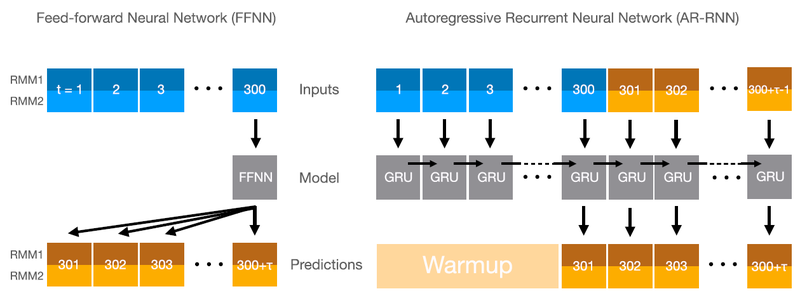Riccardo Silini defends his thesis on causal inference and prediction methods for the analysis of climate data
Jul 06, 2022
Riccardo Silini defended his thesis co-directed by Cristina Masoller and Marcelo Barreiro on July 5 at the Terrassa Campus. Titled "Causal inference and forecasting methods for climate data analysis", the thesis presents data analysis techniques to identify those processes that contain causal information for the prediction of a process of interest, and machine learning algorithms to improve the prediction of the climatic phenomenon called Madden-Julian oscillation.
To advance time series forecasting we need to progress on multiple fronts. The researchers develop algorithms to identify causal relations which allow to identify the driving processes containing useful information for the prediction of the process of interest. Complementing this, machine learning algorithms allow to exploit such information to build data-driven forecast models, and to correct dynamical models.
The identification from time series analysis of reliable indicators of causal relationships, is essential for many disciplines. Main challenges are distinguishing correlation from causality and discriminating between direct and indirect interactions. Over the years, many methods for data-driven causal inference have been proposed; however, their success largely depends on the characteristics of the system under investigation. Often, their data requirements, computational cost or number of parameters, limit their applicability.
In this thesis, the authors propose a computationally efficient measure for causality testing, with the goal of overcoming the applicability limitations of information-theoretic measures, due their high computational cost. The proposed metric is very valuable when causality networks need to be inferred from the analysis of a large number of relatively short time series. It can also be very useful for the inputs selection of machine learning algorithms; in fact, it allows to identify those processes which contain useful information for the prediction of a given process. This feature is particularly useful for systems composed of a large number of processes, whose interactions are poorly understood.
The socioeconomic impact of weather extremes draws the attention of researchers to the development of novel methodologies to make more accurate weather predictions. The Madden-Julian Oscillation (MJO) is the dominant mode of variability in the tropical atmosphere on sub-seasonal time scales, and can promote or enhance extreme events in both, the tropics and the extratropics. Currently, the estimated MJO predictability is far from being reached, leaving a large room for the improvement of forecast models. To improve its prediction skill, in this thesis, two different machine learning approaches are taken; first it is used machine learning as a stand-alone technique, showing that two artificial neural networks, a feed-forward neural network and a recurrent neural network, allow a competitive prediction, yet not exceeding the skill of the state-of-art dynamical models. Then, dynamical models are combined with machine learning, which allows to improve the predictions of the best dynamical model. In particular, machine learning allows to improve the prediction of the events intensity and geographical localization.

Share: